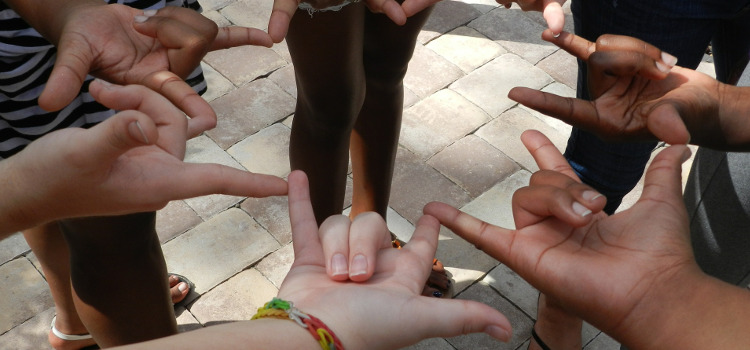[Preface by Joe: We are pleased to offer this series about Nigerian scams from an honest-to-goodness Nigerian, Mr. Chekwube Okeke. He has a degree in business administration and notes that his first name means “Put your trust in God.” He has generously offered us this information free of charge, and I know you’ll be interested in what he reveals. I have lightly edited the text for correctness and organization.]
- Inbox Dollars - Get paid to check your email. $5 bonus just for signing up!
- Survey Junkie - The #1 survey site that doesn't suck. Short surveys, high payouts, simply the best.
- Nielsen - Download their app and get paid $50!
Who Wants to Make a High School Boy a Millionaire?
Here I am doing this piece in an Internet café. The guy occupying the space right next to me is preparing a scam e-mail. It contains the picture of a famous bank CEO and the logo of the bank itself. He is posing as the bank CEO. Whoever is unfortunate enough to receive the mail (most probably, a westerner) will get the false impression that he is corresponding with a bank CEO in Nigeria.
What I am describing is nothing uncommon among scammers in Nigeria. All over the café there are people preparing scam mails, posing as bank CEOs, central bank governors, ambassadors, businessmen, accountants, senate presidents, pastors, priests, etc. Among these scammers are students in their school uniforms. I am not exaggerating and this is also nothing new.
Just a few yards from the café is a police post. “It should deter these scammers from coming to the café, you would say. It doesn’t. “Why not?” you ask. Please keep reading this piece and you will find out.
The View from My World
Surfing from a café in Nigeria, you get to witness a lot of drama. I have seen a scammer smash his handset in ecstasy on confirming the cash he had long been waiting for had arrived. I have seen scammers faking their accents and intonation pretending to be white men on the phone with their intended victims. I have seen scammers pretending to be white ladies visiting Africa for the first time when they meet a male westerner online. I have seen scammers pretending to be females looking for a date online, or pretending to be white males, depending on the gender of the person they meet online. (More on these later.)
The Nigerian scam has turned out to be very lucrative for its perpetrators. Yes, it was once the third largest industry in Nigeria. A Nigerian paper once reported that America loses about 100,000 dollars to these scammers daily.
The westerners who receive and fall for this scam mails ought to know that the tens of thousands of bucks they lose to these scammers might very well translate to millions in my country’s currency. In other words, they are making millionaires out of these scammers, some of whom have become bread winners of their family.
Scamming has become a phenomenon being celebrated by some Nigerians. Oh yes! A well known former U.S. government official unwittingly danced to a popular Nigerian scam song on stage along with the performers at a function held in the U.K. recently.
Again, in another part of Europe, another Nigerian artist performed another popular Nigerian scam song on stage while the Nigerians among the crowd danced and sang along with the artist. After he was done performing, he was asked by the host of the ceremony what the lyrics of the song meant. There were giggles, chuckles, and sniggers coming from the Nigerian crowd as the artist, knowing the embarrassment the truth would cause every one at the ceremony, had to lie to the host about the meaning of the lyrics.
I Know Scammers
This might sound awful to the westerners reading this piece. The truth is, in Nigeria, if you are not a scammer, you must know somebody who is (some Nigerians who may come across this piece may disagree and even argue with me on this one). Just months ago, a friend of mine hit it big, making over 40,000 dollars. Now he is living big and has since moved his family to a better apartment.
“A friend?” Oh yes. A childhood friend for that matter. Everyone knows someone. The person might be your next door neighbor, or that tithe giver who is a church member of yours, or your course mate in the university, or your classmate in high school or your colleague at work, or your boss who may only be using his company as a front to hide the true source of his wealth, or your brother, or your uncle, or your aunt, or your cousin, or your nephew, or even your mom and/or your dad who have been supporting the family with the extra income.
And if you do find out the person is a scammer, it is not talked about in his presence. You maintain the relationship you had with him before you made your discovery. No mention is made of it. Not unless you are a scammer friend of his too or a very close pal. It is just like what you see in mafia movies: here’s this guy who is well known in the neighborhood. He’s the nice guy who is like a friend to all, who tries to help his neighborhood every now and then. But he’s a gangster and thing is, while you are with him you have to act like you don’t know he’s a gangster. You don’t bring up any discussion that’s anywhere near that fact. Not unless you are a fellow gangster or a very close friend.
[Joe: In Part 2 of this series, you’ll hear about Mr. Okeke’s experiences in a Nigerian Internet cafe.]




